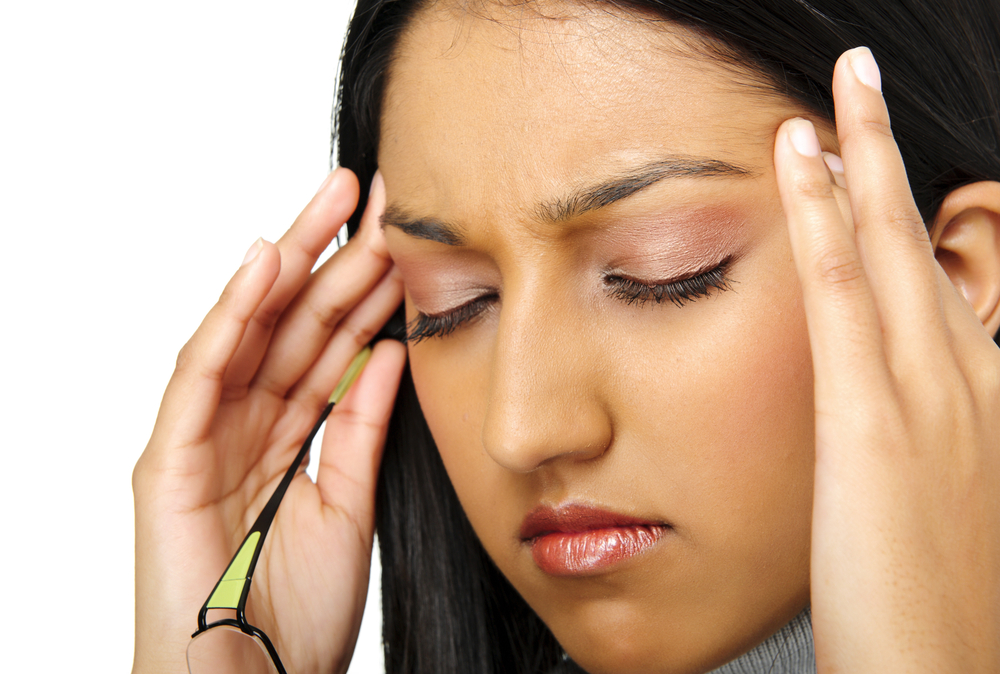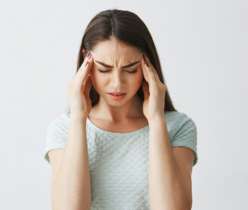A tension is the most common reason for a headache. It can cause mild, moderate or intense pain in your head, neck, behind your eyes. The majority of people who suffer from tension headaches, observes it occurring once or twice in a month on an average. However, tension headaches can also be chronic; it can last for more than 15 days a month. It is uncomfortable and tiring, but do not usually disturb sleep. People can even carry on working with a tension headache.
Many people out of today’s generation are prone to have a tension headache. They can develop such headaches at any age but are more common in teenagers and adults. Women tend to suffer from it more commonly than men. Approximately, two or three in every 100 adults experience tension-type headaches more than half a month for continuously three to four months in a row.

Also Read: Ascariasis- Symptoms, Causes and Treatment
Causes of Tension Headaches
Tension headaches are caused by contractions of the muscles in the head and neck regions. Many of the food variants, activities and stresses can be one of the reasons for this kind of a contraction. Some people face it, after staring at a computer screen for a long time or after driving for long periods or even due to cold temperature. Some other triggers for tension headaches include:
- Alcohol
- Eye strain
- Dry eyes
- Fatigue
- Smoking
- Cold or flu
- Sinus infection
- Caffeine
- Poor posture
- Emotional stress
Symptoms of Tension Headache
A headache is usually mild or moderate, but it can be intense. In this case, you might confuse it with a migraine, which is a type of a headache that causes throbbing pain on one or both sides of your head. Symptoms of a tension headache are a dull head pain, feeling pressure around the forehead and tenderness around the forehead and scalp.
Tension & Headache Cure
One should treat a tension headache at the earliest possible stage, not letting it grow into migraine treatment. Various modalities are used in the treatment of tension headaches. This include:
- Hot or cold packs
- Ultrasound
- Electrical stimulation
- Improvement of posture
- Trigger point injections
- Occipital nerve blocks
- Stretching and regular exercise
- Relaxation techniques
- Balanced meals
- Adequate sleep
Over-the-counter painkillers, such as aspirin, ibuprofen or acetaminophen are often the first treatments doctors recommend for tension headaches. If it is not effective, then your doctor may prescribe strength medicine or muscle relaxant. Some of the medicine can save you from getting a tension headache, like antidepressants, blood pressure medicines, and anti-seizure drugs. But, it should be advised to avoid frequent use of OTC pain relievers as these can lead to medication overuse headaches or might even create situations to take migraine medicines and follow migraine cures. There it is advised to consult your doctor first before taking any medicine.
Alternative methods are also there to combat with a tension headache, these includes:
- Relaxation techniques such as meditation is effective for chronic headaches as measured by headache parameters because patients with chronic headaches have been showed to have low levels of cortisol that normalizes with the practice of meditation overtime. This is one of the migraine remedies that reduce the pain and it effects.
- Acupuncture may be helpful for patients experiencing frequent or chronic tension headache. It is a valuable, non-pharmacologic tool to deal with episodic tension headache.
- Massage may also be an effective therapy for individuals bearing tension headache. It can relieve tight muscles in the back of the head, neck, and shoulders, which in turn relieve headache pain.
Preventive Measures
Knowing your headache triggers can help you avoid situations that cause a headache. The following lifestyle tips should be adopted to prevent a headache from being severe:
- Drinking water and avoiding dehydration helps in preventing tension headache.
- Using stress management and relaxing often makes headaches less likely.
- Drinking alcohol can make headaches worse. Neck pains can be relieved by improving posture.
- People having jaw clenching might also develop headaches, and getting treatment from dentist might be helpful in preventing those headaches.
- Biofeedback techniques are also proven to be helpful.
- Use a different pillow or change your sleeping positions.
- Get your eye checked. And, if you use glasses, make sure that you wear them regularly.
Also Read: Understanding Osteoporosis
Various factors are associated with tension headaches, including stress, sleep deprivation and hunger, it can be disruptive to daily living and can have a detrimental impact on an individual’s life. Once the cause of patient’s tension headaches is identified, follow your health care provider’s instructions about how to take your medicines. And, if possible, try to take preventive measures before the pain gets wider so that it can be controlled in the initial stage itself to keep everything at a smoother pace in your daily life.




